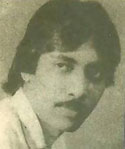
By S. Arshad, New Age Islam
10 January 2019
Amir Khusrau was the greatest poet of India who is known for his nationalist and liberal views. He was adept at writing both traditional literary poetry in Persian and folk poetry in vernacular (Hindawi) which was a mixture of Khadi Boli, Braj Bhasha, Awadhi and other regional dialects. On the one hand he composed traditional Persian Ghazals in which romantic and mystical ideas were presented, and on the other, he composed folk poetry ( Paheli, Kah Mukarni, Dhakosla, Doha etc) in Hindawi (or Urdu in the initial stage).He also wrote Masnavis (long poems) on kings and on India’s culture, religion and arts. As the Persian Ghazals and Masnavis gave him a pride of place in the literary arena of the time, the folk poetry he produced in local language and diction made him popular among the common masses.
To understand his temperament and poetic attitude, we should look at his family background and his upbringing. He was born in Momin Abad in the district Patiali of Uttar Pradesh near Agra in 1258. His father Saifuddin Mahmood was a Turk and had come from Turkistan during the invasion of Chengiz Khan. He belonged to the Hazara Tribe. He settled in India. His mother Daulat Naz was the daughter of Imadul Mulk, a diplomat (advisor of kings). Therefore, Amir Khusrau inherited both Turkic and Indian culture. But in later years, he developed a deep love for his motherland. He did not look down upon Indians a lower race and never boasted of his Turkish origin. In his masnavis, he has celebrated the beauty of India’s land and its flora and fauna, the customs and rites and rituals of Indians, its rivers, mountains, animals, fruits and its cities and towns. He expresses his love of India so often and so deeply that he emerges as a nationalist poet. This may seem surprising because he celebrated and promoted the idea of nationalism as far back as in the 13th century when the idea of nationalism or nation state had not developed as a political theory and India was not united a nation state. During that period, India was ruled by Muslim rulers and so his secularism or nationalism was not his political or social compulsion. He held India in such a high esteem that in his Masnavis he even compares India with Makka and Madina, two most revered places of Muslims.
In his Masnavi Qiranus Sa’dain, he praises the monuments, buildings and people of Dilli in the following words:
Its People Are Angels
They Are Vivacious and Good Natured Like the People of Paradise
In his Masnavi Nuh Sipihr, he praises the beauty of flora and fauna of India, the rich culture of Indians, the beauty and grace of Indian women and Indian seasons. He calls India Paradise on Earth.
Kishwar-e-Hind Bahishtey Ba Zameen
He also praises the buildings of Dilli like Qutb Minar, Jama Masjid and Dilli Fort in detail. Since he spent most part of his life in Dilli, he regarded Dilli as his homeland but he also praised the natural beauty of other cities of India. For example, when he visited Warangal (a famous historical town of the South) he was overwhelmed by the natural beauty and vegetation of the city. He likened Warangal to Baghdad and Cairo and said it was Paradise on Earth. He also describes the wealth and prosperity of Warangal. All this speak of his nationalist outlook and his patriotism. Unlike Iqbal who said
Naghma Hindi Hai To Kya Lai To Hijazi Hai Meri
(Although my song is Indian, my voice is Islamic)
Khusrau vows his total loyalty to his country of birth and believes that his Indian nationalism does not clash with his faith. He can be a devout Muslim even while expressing his love for India.
Amir Khusrau was a Sufi and was a disciple of Hadhrat Khwaja Nizamuddin Awlia. His Sufi mindset and outlook made him more liberal and secular. Though he was a Muslim, he did not look at the customs and religious practices or beliefs of Hindus with contempt or critical view of a Muslim. He looked at the beliefs and practices of Hindus from a pantheistic or philosophical point of view. He believed that Hindus of India were Monotheist. He praises the devotion and spirit of sacrifice of Hindu men and women. He praises the custom of Sati on the ground that this showed the loyalty and deep sense of emotional attachment of Hindu women to their husbands.
Chun Zan-E-Hindu Kasey Dar Aashiqi Deewana Neyst
Sokhtan Bar Sham-E-Murda Kar-E-Har Parwana Neyst
(No lover can match the intensity of love of a Hindu woman;
Dying for a dead candle is not the cup of tea of every fireworm)
Khusrau also looks at the religious beliefs (polytheism) of Hindus from a pantheist or mystical point of view. As a Sufi he believed in the philosophy of monism (Wahdat ul Wujud). He said that despite image worship, Hindus believed in one Supreme Being. In various couplets, he asks Muslims to draw inspiration from the devotion, spirit of sacrifice and religious fervor of Hindus.
From this point of view, Khusrau emerges as a pluralist and nationalist thinker. His outlook towards other religions is positive. He appreciates the positive features of all the religions and focuses on common features of religions so that the bond between different religions is strengthened and peace and harmony prevails in the society. Amir Khusrau was the first nationalist and truly secular poet of India who later inspired Nazir Akbarabadi and others to shape their poetic outlook on similar lines.
S. Arshad is a regular columnist for NewAgeIslam.com

No comments:
Post a Comment